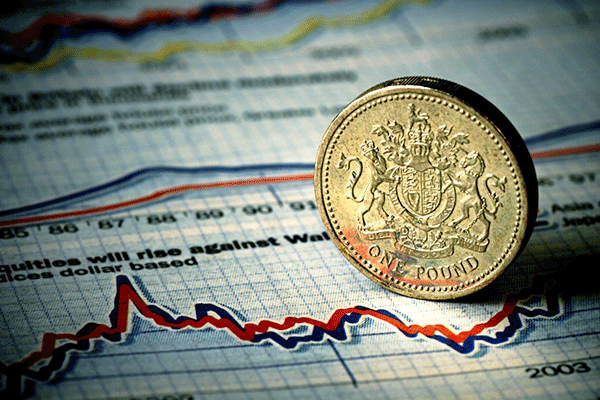Six ways the falling pound could hit your finances
26th September 2022 15:03
by Alice Guy from interactive investor
With the pound plunging to almost dollar parity, Alice Guy looks at how a weak pound could affect the money in your pocket.

UK consumers woke up to yet more bad news this morning as the pound tumbled to a record low of 1.07 against the dollar, following the chancellor’s mini-budget on Friday.
Victoria Scholar, head of investment at interactive investor, commenting on the pound’s fall from grace said that, “there are major investor concerns about [Kwasi Kwarteng’s] lack of focus on fiscal prudence and sound money given that his strategy depends on alarming levels of government debt at a time when the cost of borrowing is sharply on the rise. On top of that, the chancellor has failed to focus on the inflationary implications of his agenda when price levels are already flirting with double digits.”
With a rocky time ahead for sterling, we take a look at what the falling pound could mean for your finances.
1) Holidays
For those escaping to sunnier climes, or hitting the ski slopes this winter, the falling pound is bad news. It will mean the pound in our pocket stretches less far, so we either have to spend more or switch our plans to a cheaper option.
Those heading to the US will feel the most pain as the pound has slipped much more significantly against the dollar than the euro. The tumbling pound was broadly matched by a sliding euro, as the worldwide scramble for dollars put the skids under both currencies.
You would need to spend £935 to buy $1,000 today, compared with only £730 one year ago. That means a trip to the Big Apple that cost £5,000 last year would now set you back an extra £1,400, even without any inflation.
In contrast, the fall in sterling against the euro is less severe. You would need £901 to buy €1,000 compared with only £855 last September, meaning a villa costing £2,000 would now cost around £2,108 before inflation.
Amount needed to buy $1,000 or €1,000 | Sep-21 | Sep-22 |
Dollar | £730 | £935 |
Euro | £855 | £901 |
2) Inflation
For those of us staying at home, the falling pound is likely to push inflation higher as the cost of UK imports increases.
A falling pound adds to the inflationary pressure on the UK economy because the UK imports more than it exports, making goods more expensive for both companies and consumers. Oil, petrol and other goods imported from abroad will all cost more in the months to come, unless sterling goes into reverse.
Pensioners on a fixed income, or workers who have had recent pay freezes, will be especially hard hit as inflation erodes the purchasing power of their income, making them poorer.
- What Truss’s energy cap means for inflation and your finances
- Kwasi Kwarteng’s explosive mini-budget: winners and losers
- Glimmer of hope for savers as inflation slows to 9.9%
3) Interest rates
There is also speculation that the sharply falling pound could trigger an emergency decision on interest rates from the Bank of England. Some critics argue that last week’s 0.5% rise didn’t go far enough and is partly responsible for the falling pound.
A prompt decisive interest rate decision could reassure the markets and help prevent further losses for the pound, although the Bank of England also needs to weigh up the risks of higher interest rates restricting growth and sparking a deeper UK recession.
4) Stock market
A falling pound often offers some upside for the stock market as many UK companies make most of their profits overseas. This means a falling pound can actually bolster the value of the FTSE 100, as profits abroad are translated back into sterling.
The problem is that, although a weak pound usually props up the FTSE 100, in this case the markets are also nervous about the fiscal policies of the new government, and multiple headwinds are contributing to a storm for the flagship index. The FTSE 100 dropped by a further 0.8% by lunchtime on Monday to below 7,000 and the UK-focused FTSE 250 was down an even more disappointing 1.6%.
Richard Hunter, ii’s head of markets, commented that, “Sterling weakness has provided something of a floor for the FTSE 100, where the majority of earnings come from overseas and are therefore more valuable in repatriation. Even so, and despite a modestly positive open, the FTSE 100 has now given up its previous gains over recent months and is down by 5% in the year to date.”

5) Wages
Just like consumers, the falling pound means that businesses will need to pay more for goods they import from overseas, leading to increasing supply costs. Where these costs can’t be passed on to consumers, they will have a negative impact on businesses that are already stretched by rising energy, wages and interest costs.
These increasing business costs could have an indirect effect on workers as many businesses may struggle to give wage rises that keep pace with inflation. It is also possible that some businesses will be forced to take drastic action this winter and make cuts to their workforce through redundancies.
But economic pressures are likely to vary significantly from sector to sector. Some businesses will be able to pass extra costs on to consumers and others that export abroad will actually benefit from a falling pound as their goods become cheaper for foreign customers.
6) Taxpayers
A falling pound could also lead to increased government borrowing as the state needs to buy wholesale energy for the next two years to fulfil its energy support package obligations. The energy support package is predicted to cost around $60 billion. But that bill might rise significantly if the pound remains weak and wholesale energy prices continue to increase.
In the long run, increased government debt will need to be passed on to taxpayers through either higher taxes or cuts to public services. With government debt already at a record level after the Covid pandemic, it’s a bleak picture for future taxpayers.
These articles are provided for information purposes only. Occasionally, an opinion about whether to buy or sell a specific investment may be provided by third parties. The content is not intended to be a personal recommendation to buy or sell any financial instrument or product, or to adopt any investment strategy as it is not provided based on an assessment of your investing knowledge and experience, your financial situation or your investment objectives. The value of your investments, and the income derived from them, may go down as well as up. You may not get back all the money that you invest. The investments referred to in this article may not be suitable for all investors, and if in doubt, an investor should seek advice from a qualified investment adviser.
Full performance can be found on the company or index summary page on the interactive investor website. Simply click on the company's or index name highlighted in the article.